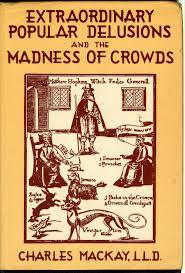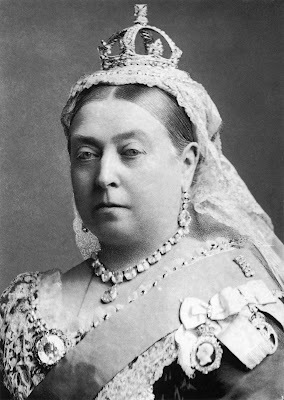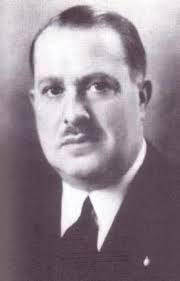Stephen Roney's Blog, page 195
June 28, 2021
A Partial List of Current Leftist Articles of Faith
Mostly gleaned from a Twitter thread:
Epstein committed suicide
McAfee committed suicide
Biden won the election
Fraud is impossible in an American federal election
Unless it is done by Russians.
COVID came from a wet market
Conservatives are terrorists
Ivermectin doesn’t work
Hydroxychloraquine doesn’t work
Biden doesn’t have dementia
Biden stutters
Cuomo handled the COVID pandemic better than anyone
Hunter Biden is an artist
Trump colluded with Russia
Trump told people to drink bleach
Biden has never taken money from interests in Russia, China, or the Ukraine
Jan 06 was an insurrection, an attempt to overthrow the constitution and the US government
Men who say they are women are real women
BLM is mostly peaceful
Antifa is just an idea
George Floyd didn’t overdose
The laptop wasn’t really Hunter Biden's laptop. Nothing on it is real.
Trump caused the current outbreak of hate crimes against Asians.
White rage is the biggest problem America faces.
All white people are racist
Black and Hispanic people, or aboriginal people, cannot be racist/
A burst pipe in Atlanta stopped the vote count there
The China travel ban was racist
It is racist to call COVID-19 "the China virus"
There is no problem with referring to a "UK variant," a "Brazilian variant," or a "South African variant"
It is racist, however, to refer to an "India variant"; one must use Greek letters.
Words are violence
Burning down buildings is not violence.
Entering the Capitol Building is violence.
The FBI is apolitical
CNN is straight news
The Obama administration didn’t build cages
Church services spread viruses; casinos and riots do not.
The border is under control
Voter ID is racist
Biden is tough on Putin
Christine Blasey Ford was credible
Eric Swalwell isn’t compromised by having an affair with a Chinese spy
China managed COVID well
The WHO is an independent body, whose opinions are purely based on the science
Gain of Function research wasn’t funded by the US government
A video caused Benghazi
Hunter Biden was hired on merit
“Hands up Don’t Shoot” describes what really happened to Michael Brown in Ferguson
AR15s are weapons of war
Donald Trump called neo-Nazis “fine people”
Fathers don't matterOnly women reproduce; so only women have reproductive rights
Black people cannot get IDs.
A human foetus is not a human
The US Constitution is racist
There is no mental difference between men and women
But women are more caring than men
Anything labelled "fact check" must be true.
No doubt more to come with a little more reflection. You can probably add your own.
Some of these notions are at least debatable, but the easiest way to look at it, per Occam's razor, is that the left is insane.
'Od's Blog: Catholic comments on the passing parade.
Mumilaaq Qaqqaq on Leaving Politics
NDP MP Mumilaaq Qaqqaq (Nunavut) recently stood up in the Canadian House of Commons and said she would not run again. She lamented that no change was possible as an elected representative, because “The systems are built to work for certain people. It’s middle-aged white men.”
This is not helpful. This is appallingly defeatist. For it necessarily means that nobody they elect can ever make things better for the Inuit. They are left helpless. Any improvement must be done for them by others. It seems to me it is an abdication of her responsibilities as a leader. Like a general sending his troops into war with the warning that they are all going to get killed and there is no point.
As an elected representative, it is her job not just to point out problems; anyone can do that; but to propose solutions.
Qaqqaq’s signal accomplishment as an MP was apparently to introduce a bill to put Inuktitut on the ballots in Nunavut. A purely symbolic matter; there are probably no Inuit of voting age who cannot read the Roman alphabet.
So far as I can make out, her “solution” to the various problems of Nunavut, the alarmingly high suicide rate, the lack of affordable housing, the lack of jobs, is just to spend more money: “These powerful individuals don’t think change is worth the money.”
That is either a cynical or a cowardly position. No matter how much money is being spent on any given problem, anyone can score points by claiming more money should be spent. We need concrete proposals, and it is precisely her job to come up with such proposals.
Everyone wants the best for Canada’s Inuit. Everyone wants the best for Canada’s women, and perhaps particularly, to be frank, its attractive young women. Nobody wants anyone committing suicide. The question is, what can we do about it?
Perhaps that is the clue to Qaqqaq’s, and Nunvut’s, problem. Qaqqaq is an attractive young woman. Because everyone loves an attractive young woman, attractive young women get the habit of expecting things to be done for them. They do not learn initiative.
Similarly, the problem for the Inuit, and for Canada’s indigenous people as a whole, may well be that the majority population is too fond of them, the romantic “noble savage.” Governments and the culture as a whole has tended to fawn on them, and look after them, and protect them from the outside world like children, and has thus stripped them of all initiative. This might look attractive, and is fatally hard to break away from, but it is not the path to either accomplishment or happiness.
'Od's Blog: Catholic comments on the passing parade.
June 27, 2021
The Real Impetus Behind Cancel Culture
Do you realize what “cancel culture” is really all about? It is the clearest possible evidence that the left has lost the culture wars. I have seen it happen again and again at the individual level. If someone decisively loses an argument, so much so that they feel they look foolish, they unfriend you. They want to end the conversation by whatever means necessary. Nobody ever concedes or admits they were wrong. Instead, to avoid this, they will predictably attack you on any available premise, and shut down the discussion. They will aggressively assert obvious falsehoods to be true. If they do not have the power to silence you, then they will leave. When it happens, you should know that you have won. They are desperately protecting their crushed ego.
That is exactly what we are seeing now: the “woke” left is declaring everyone a racist and a Nazi, and trying to silence them.
The collapse is bound to happen at any moment, and it may be swift. First they ignore you, then they mock you, then they fight you, then you have won.
Incidentally, the3 black commentator in the clip above is indeed wrong on what is in the Iowa bill, as common sense should have told him. The things he is reading out as prohibited are actually subjects the bill singles out as still to be taught.
'Od's Blog: Catholic comments on the passing parade.
A Cure for Allergies
Scott Adams remarked on YouTube today that, since he got vaccinated, his allergies have gone away.
Hearing that, I realize I have the same experience. I think I have not had an attack of my nasty dust allergy since I got my first shot. I had noticed this, but had not thought to connect it with the vaccine until Adams mentioned it.
Every cloud has a silver lining?
June 24, 2021
More Unmarked Graves Found in Saskatchewan
 Enough said?
Enough said?
I am increasingly scandalized by the general reaction, at least in the media, to the announced discovery of 215 unmarked graves near the Kamloops Indian Residential School; and today of maybe 751 more more near Marieval Residential School in Saskatchewan. People are talking about cancelling Canada Day in response.
What exactly do they think has been demonstrated by the discovery of unmarked graves?
Are they imagining the children were murdered? If they had been, would the police, the parents, the Department of Indian Affairs, the church bodies, or the Indian bands not have noticed at the time? Mustn’t they have all then been complicit in some vast conspiracy?
Are they imagining the children died of neglect? Estimates are that one third to one half of all children in the 19th century died before the age of five. High child mortality was a fact of life. Indian reserves, in particular, were notoriously riddled with tuberculosis: Eight times the national average. Two studies on the Prairies in the early 20th century found that 80 to 100 % of all Indian children entering schools already had tuberculosis. “An official 1907 report into Manitoba Indian Residential Schools … included charts cataloguing pupils as either “good,” “sick” or “dead.”” (National Post, June 2, 2021).
Some proportion of these children inevitably died; others died of the dozen common childhood diseases we have since eradicated. The Department of Indian Affairs would not pay to ship bodies home; the parents were not prepared to, or could not afford to; so they were buried locally.
Then the schools were shut down. The government might have tended the gravesites; the local band might have tended the gravesites. Neither did. Like many other cemeteries in many other places, they were left to the elements. Leave a graveyard untended, and grave markers tend to disappear. Wood burns. Stones fall over and are buried; or are ”borrowed” for construction projects.
Kingston, Ontario’s old city cemetery was closed in 1864. By the late 1880s, many of not most of the original grave markers had disappeared—less than 25 years later. Marieval Indian Residential School closed in 1997; 25 years ago. The Kamloops Residential School has been closed since 1978—33 years ago. There is no reason even to suppose the graves were originally unmarked; they might have been.
Official written records are spotty; apparently this is because the government recycled the paper at some point.
Does Canada really stand indicted for this? For not maintaining better archives? Not always easy to guess, surely, what people will decide your priorities should have been a hundred years later.
The current media and public reaction to the unmarked graves looks like hysteria.
'Od's Blog: Catholic comments on the passing parade.
June 23, 2021
The Day My Mama Socked It to the Loudon County PTA
There was a dustup a day or so ago at a school board meeting in Loudon Country, Virginia—a large number of parents came out to protest critical race theory, and were shut down by the board. It seems that the general public was unaware of just what was going on in the schools—perhaps until the pandemic let them listen in on their children’s classes—and now that they know, there is a backlash. With luck, it will carry the day.
But critical race theory is just one tentacle of an academic octopus called critical theory. It has really been around for a long time, and has spread far beyond the public schools, in one form or another. It was around already when I was in grad school back in the 1970s, although it did not have the name “critical theory” yet. I think it has been around, in essence, at least since Nietzsche.
A recent journal article gives an overview of the state of the field. It is no doubt not unimpeachable, but it is at least from the Trojan horse’s mouth: a declared critical theorist.
Our author, a professor at the University of British Columbia, identifies three intellectual strands making up “critical teory”: postmodernism, Marxism, and postcolonialism. He does not include feminism. Feminism and critical theory used to be conjoined, but there has been a recent falling out. The goals of feminism clash with the goals of transgenderism, and transgenderism has won the intersectionality sweeps. Feminism requires the assumption that there are such things as women. Postmodernism will not allow the premise.
Postmodernism holds that nothing is real. We just make things up as convenient. In the words of the present author, “meanings are neither fixed nor singular, but rather multiple and ever-shifting.”
Marxism insists that everything is at the group or social level, and everything is about power. In the words of our author, Marxism “thinks in binary terms between the oppressor and the oppressed,” and everyone must be one or the other.
Traditionally, Marxism sees this in economic terms, with the bourgeoisie as the oppressors, and the proletariat as the oppressed. Postcolonialism switches this to race instead of class. If anything is less than desirable in the world, as determined by whomever wields the arbitrary power to determine it (for nothing, according to postmodernism, can ever be good or bad in itself) it is the fault of “Whites” or “Europeans.” For they are uniquely “colonizers.”
Put together and examined in this way, it is the very same ideology as Nazism, with “Whites” replacing “Jews” as racial scapegoats.
It is, of course, aside from being malicious, malicious nonsense.
Postmodernism is immediately self-contradictory. The present author, for example, ponders the question, “What does criticality really mean?”--without realizing the question is now nonsensical. There are no meanings, and is no “really,“ according to criticality.
Marxism, rather than being immediately self-contradictory, is merely disproven. Marx’s plan was to put the study and management of society on a “scientific” basis: Marxism was “scientific socialism.”
The proof of any scientific contention is in its ability to predict: this is what experiment is about. But every prediction made by Marx about the subsequent course of human history has been false. He expected a growing proletariat, and a shrinking bourgeoisie. The opposite has happened. He postulated growing wealth inequality. The opposite has happened. He anticipated a worldwide revolution led by the proletariat, happening first in the most developed countries. Nowhere has this happened, including in Russia or China. By scientific standards, he was simply wrong.
Postcolonialism maintains that colonization and empire are a uniquely European creation. This is easily disproven by a study of history. Most parts of the world have been empires and colonies throughout recorded time. The peculiarly European innovation was the nation state—in a word, postcolonialism is what Europe brought to the world. Leaving “postcolonialism” arguing against itself.
Where has such obvious nonsense come from?
I suggest it is from the secularization of our education system. Until perhaps a hundred years ago, or roughly until Darwinism became popular, the universities and the schools were founded on religious principles. This sense of cosmic direction is necessary for education to work: if you do not know where you are going, you cannot know how to get there. Theology was Queen of the sciences, and the most advanced academic degree was “doctor of philosophy.”
But somewhere about the turn of the 20th century, that place was taken by physical science. Physical science is inadequate to the task. It is simply a tool, and offers no goal or meaning or reasons.
Since then, we have seen the emergence of a series of “scientific” pseudo-religions to fill the vacuum: Freudian psychology, fascism-Nazism, Marxism, and so forth. Each has, after a few decades, failed in turn. Critical theory is basically the current synthesis. Marxism, disproven by science, has been put on life support by asserting, through postmodernism, that science itself is of no value. Postmodernism is nonsense, but postmodernism refuses to acknowledge sense. Postcolonialism allows all standards failed by either postmodern theory or Marxist theory to be dismissed as a racist white cultural imposition.
It actually smells very much like desperation. I would be surprised not to see it all collapse within the next few years.
'Od's Blog: Catholic comments on the passing parade.
June 21, 2021
Cold Distant Victorian Fathers
 Cold and distant, perhaps, but not a patriarch
Cold and distant, perhaps, but not a patriarchFriend Xerxes grudgingly allows that fathers are wrongly devalued in our current culture. Nevertheless, he is concerned about the greater danger of going back to “A cold, distant, Victorian father-knows-best who dispenses periodic packages of moral instruction.”
I wonder if that model of fathering ever existed, or whether it is purely an invention of modern feminism.
My suspicion is initially raised by the “Victorian” reference. Nobody now living is likely to have any experience of a Victorian father. I am in my late sixties; even my grandparents came of age in the Roaring 20’s, in open revolt against anything “Victorian.”
“Victorian” becomes just long enough ago to offer a conveniently blank slate, onto which we can project our prejudices.
But notice the name of that era. One woman, and her social opinions, set the tone then for the English-speaking world, and to a large extent for the world as a whole, for over 60 years. Victorian sentimentality, Victorian romanticism, Victorian aestheticism, could be argued to be distinctly feminine values. Strict rules of etiquette were promoted; again, most often a feminine concern. No room for a “patriarchy” there. The British Empire was literally a matriarchy.
Perhaps there was a patriarchy before 1837? Perhaps; or perhaps male and female roles were balanced for overall equality over the course of the millennia, and the long possession of the throne by a woman upset that balance.
Xerxes’s second example of oppressive patriarchy seems to be a TV show from the 1950s, which he mentions several times iin his original piece: “Father Knows Best.” The title might superficially suggest that, but it was somewhat ironic. The father in that show, played by Robert Young, was, in the words of Wikipedia, a “Caspar Milquetoast” character. Although sensible, even wise, he was generally not listened to by his children; certainly no disciplinarian. The wife and mother, again in the words of Wikipedia, was the “voice of reason.”
So did this stern, powerful, “cold distant Victorian father-knows-best” ever exist as a social norm? Can you think of an example from literature—that is, in which such a character is cited with approval? I cannot. You might argue for the Biblical patriarchs, but that is not just very far back in time. While they exert great power over their family, it is questionable whether the Bible considers this power a good thing, or condemns it. Every Biblical patriarch, in their treatment of their own family, is portrayed as deeply flawed.
I wonder too where Xerxes gets the idea that the father’s essential role in the family as spiritual guide and mentor, one which was indeed filled by the father in “Father Knows Best,” implies being “cold” or “distant.”
The obvious model of a spiritual guide and mentor for any Christian is Jesus Christ. Can one describe him in the Gospels as cold or distant? That seems the opposite of the entire point of the incarnation. Would you, for that matter, describe John the Baptist in such terms? St. Paul? St. Peter? Catholic saints in general? Not the descriptors I would use.
What about other religions. Krishna? Rumi? Shams-e Tabrizi? Socrates? The Baal Shem Tov?
What about literary figures? Obi-Wan Kenobi? Yoda? Gandalf? Cold and distant?
Where is that “cold, distant” image coming from—other than, perhaps, feminist anti-male prejudice?
'Od's Blog: Catholic comments on the passing parade.
Review My Book
Here's an exciting limited-time offer: get a free copy of my book Playing the Indian Card in return for writing a review.
Hurry--only 20 copies available.
https://booksprout.co/arc/69523/playing-the-indian-card
Nathan Cohen
 Nathan Cohen
Nathan CohenAnother lyrical clue that all was not well between Leonard Cohen and his father, from the song "Everybody Knows":
Everybody knows that the boat is leakingEverybody knows that the captain lied
Everybody got this broken feeling
Like their father or their dog just died
That always struck me as an inapt parallel--surely a father dying is a more significant event than a dog dying. But maybe that is the point; maybe Cohen is calling his father a dog, and no more. After all, given his own life experience, this cannot be a casual mistake. He knows exactly what it feels like to lose a father, for his father died when he was nine.
His father may also be meant by "the captain."
'Od's Blog: Catholic comments on the passing parade.
June 20, 2021
A Quickie CanLit Canon

A Kiwi friend has asked me what the essential canon of Canadian literature is, for the sake of teaching a Chinese high schooler.
These are the pillars of Canadian literature, which are the foundation for everything else.
1. Lucy Maud Montgomery, Anne of Green Gables. The character of Anne reappears constantly in Canadian literature. And this book established children’s literature as the most Canadian genre.
2. Stephen Leacock, Sunshine Sketches of a Little Town. This established humour as the essential Canadian tone. And, with Anne, the small town as the essential Canadian setting.
3. Robert W. Service, Songs of a Sourdough. Especially the two poems “The Shooting of Dan McGrew” and “The Cremation of Sam McGee.” The essential Canadian experience of the north, and the theme of survival in the face of an overwhelming climate and geography. And a focus on ordinary working people and their problems. Canadian culture is a folk culture, not “high art.”
4. John McCrae, “In Flanders Fields.” The First World War was Canada’s coming of age.
5. Roch Carrier, “The Hockey Sweater,” aka “The Sweater.” Although more recent than other selections, a universally beloved, lighthearted analysis of Canada’s culturally binary nature.
Not that much to read, and not hard reading, but this is what anyone needs to understand Canadian literature.
Other important books worth considering, if and when you get through these:
Al Purdy, “The Country North of Belleville.” That one contains a lot of the Canadian experience.
Mordecai Richler, The Apprenticeship of Duddy Kravitz. Richler’s short story “The Street” would be a good shorter alternative. The essential Canadian immigrant experience.
Gabrielle Roy, The Tin Flute.
W.O. Mitchell, Who Has Seen the Wind?
Brian Moore, The Luck of Ginger Coffey.
Alice Munro is a good choice too. First Canadian to win the Nobel for Literature, and her “small town gothic” is a deep expression of the Canadian soul.
'Od's Blog: Catholic comments on the passing parade.



